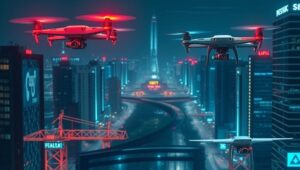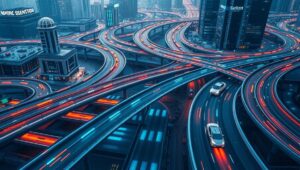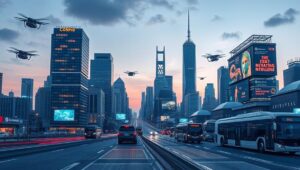May 19, 2025
IoT for Public Safety and Emergency Response in Cities (2027)
IoT for Public Safety and Emergency Response in Cities (2027) The Internet of Things (IoT) is rapidly transforming urban landscapes, and one of its most critical applications lies in enhancing public safety and emergency response. By 2027, cities will be leveraging advanced IoT technologies to create safer, more resilient environments for their citizens. This article explores the key IoT applications, benefits, and future trends in public safety and emergency response. Key IoT Applications in Public Safety Smart Surveillance Systems: Integrated networks of high-resolution cameras, equipped with AI-powered analytics, will enable real-time monitoring of public spaces. These systems can detect anomalies





